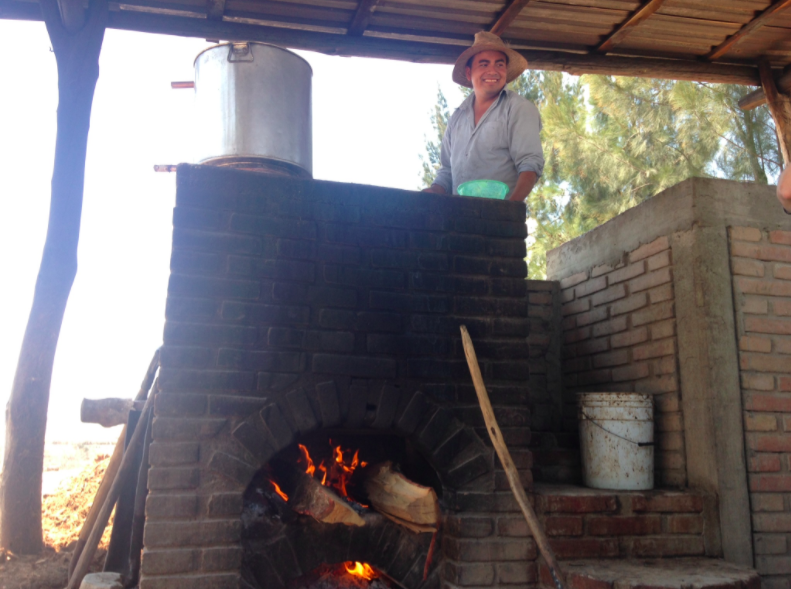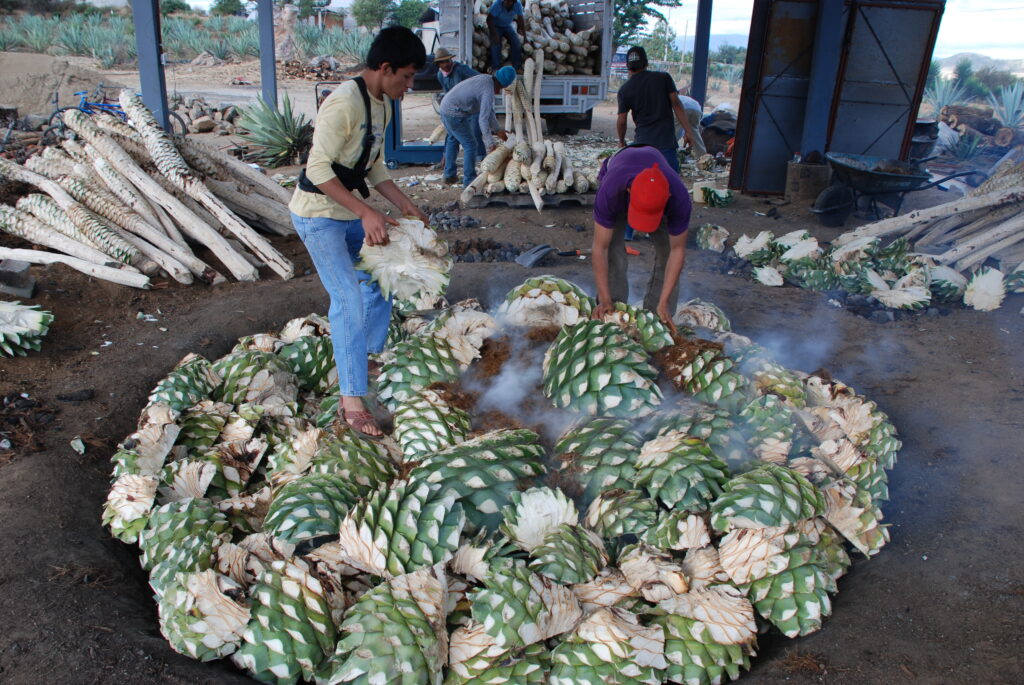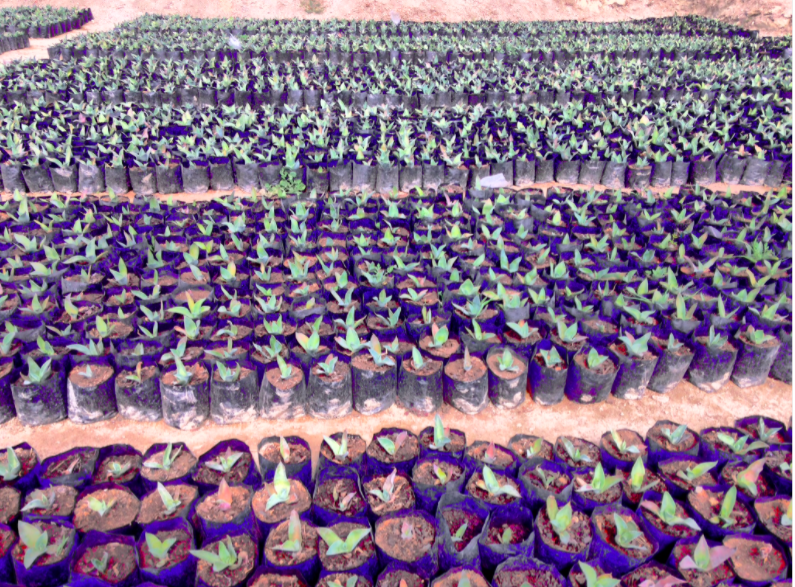By Lou Bank, Executive Director and Founder of SACRED
SACRED is a 501(c)(3) not-for-profit and a 1% for the Planet Nonprofit Partner that helps improve lives in the rural Mexican communities where heritage agave spirits are made. SACRED’s founder and executive director Lou Bank is hosting an unforgettable mezcal tasting event at WNDR San Diego on Monday, October 14. Whether you’re a seasoned aficionado or a newcomer, Lou will take you on a journey through the unique production process, the diverse agave varieties, and the distinct regional nuances. RSVP here! And keep reading to learn more about SACRED’s mission and work.
There’s a debate among agave geeks: Was there distillation in the Americas before the Europeans landed here? And I think it’s the wrong debate.
First, the question itself suggests that distillation is some kind of marker of an advanced civilization. The people who inhabited what we now call Mexico had built a floating city that was home to more than 200,000 people. If that’s not a marker of an advanced civilization, I don’t know what is.
But more than that, I think the better question is, in a world where everything has become automated, why are there so many families in rural Mexico who still use pre-industrial methods to make their heritage agave spirits?
When you drive the back roads – and even many of the main roads – of Oaxaca, Michoacan, Puebla, Guanajuato, San Luis Potosí, Durango, you will inevitably stumble upon a clearing with a large ditch filled with blackened rocks and coal ashes. Or a large, open-top wooden barrel filled with fibers and water. Or something that looks like a brick pizza oven with a backyard chiminea dropped into the middle. Or something else that suggests you’ve traveled backwards in time.

And, more to the point, you’ll even see this in rural Jalisco, where something like 85% of all Tequila is made. When Tequila was introduced to the broader world at the 1893 World’s Fair, the relatively small community of producers had to figure out how to ramp up production, quickly, to fill global demand. This led to an industrialization of Tequila that introduced efficiencies like closed fermentation, column distillation, and pressure-cooking of the agave. These changes made work easier and profits greater.
And yet, even in rural Jalisco – just a couple hours from this industrial boom – many, many families continued to ferment and distill using pre-industrial methods. Why?

Some have suggested the families didn’t understand these new tools. But when I look all over the world at how spirits are made, I only see a handful of places still employing pre-industrial methods. If they understood it, so far away, it’s not possible the mezcaleros within easy driving distance couldn’t figure it out.
Others have suggested the start-up costs are too high – the mezcaleros couldn’t afford to change over. But I’ve been to dozens of these small, family-run distilleries that actually have the closed steel fermenters – gifts from the government trying to support increased production. Inevitably they’re used instead to store grain.
For me, this is the real question: When the rest of the world largely abandoned traditional methods of fermentation and distillation, why didn’t so many of these families in rural Mexico? That’s what I wonder about. And the only conclusion I can come up with is, these families recognized the importance of the multi-generational wisdom that informs the development of these spirits.
That multi-generational wisdom, I see it employed in so many other facets of life in these communities: water-security, food-security, biodiversity. I think that multi-generational wisdom, in conversation with the efficiency-focused world, could develop more robust solutions to the problems we face as a society.
But that multi-generational wisdom – that traditional way of life in these rural communities – is at risk of disappearing as we drink more Tequila, more Mezcal. It’s literally at risk of being consumed. The resources these communities need to carry on their traditions are being redirected in service of our consumption patterns.

That’s why I started SACRED. We ask these communities what problems they have, what solutions they imagine to these problems, and what resources they need to implement those theoretical solutions. Then we go looking for those resources, which often come from the same corporations that are supplying our demand for Tequila and Mezcal. Because they, too, can see that we can’t afford to lose this multigenerational wisdom.
Lou Bank has sold more copies of a single comic book than anyone else in America. He helped bring Pokemon to the masses, Star Wars to the cereal aisle, and Morimoto to the beer geeks. But if you’re here, you’re probably more interested in the fact that he founded SACRED, a 501c3 not-for-profit that helps improve quality of life in the rural Mexican communities where heritage agave spirits are made.

